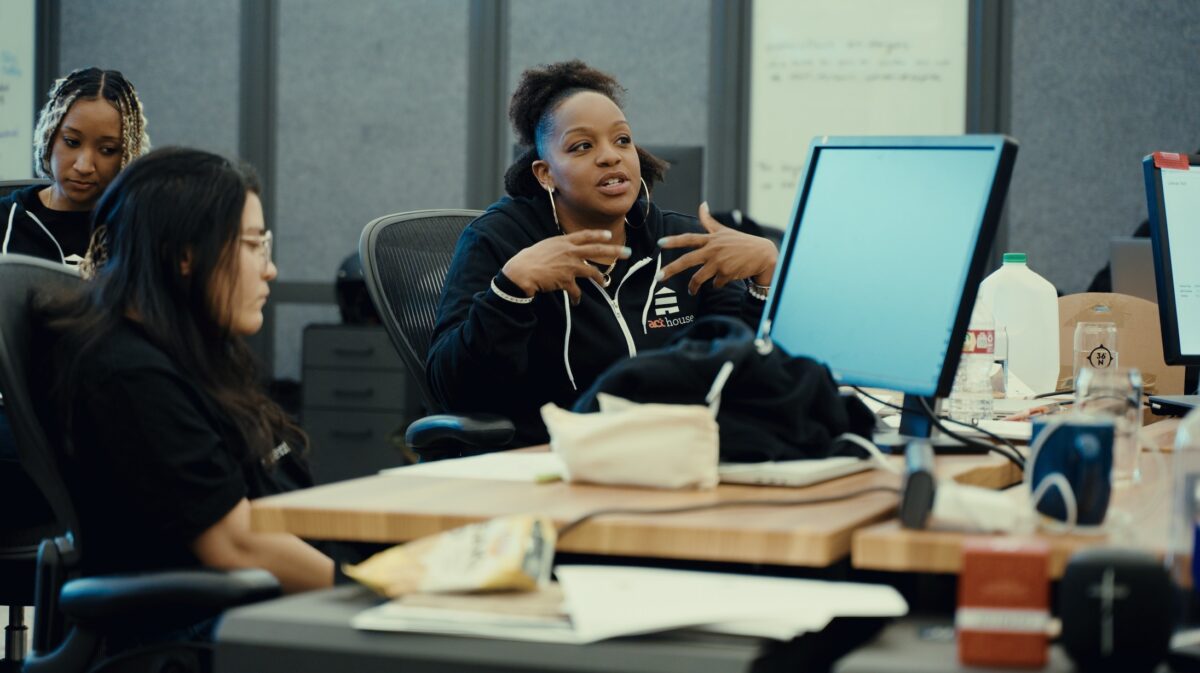“I remember it clear as day. Honestly, I really kind of felt called by the man upstairs, like, ‘Go back to Tallahassee,’” said Dominick Ard’is, CEO of ACT House and managing partner of ACT Ventures.
Ard’is had been considering returning to his home state and pondering a crucial question: What should he do next?
His response came in the form of an idea for a startup house. In 2017, Ard’is, previously a consultant for Booz Allen Hamilton, left corporate America and founded ACT House as a response to his aspiration to support artists and entrepreneurs.
Dust yourself off and try again
ACT House is the second startup for Ard’is, whose earlier career was in politics. His first startup was called The Town. Launched in 2012, the company’s app was designed to provide users with information about their city, including updates on municipal matters, local activities and community news.

Dominick Ard’is. (Courtesy ACT House)
Even with a pivot to a niche college audience and a name change, Ard’is’ app faced challenges primarily related to funding and risk aversion from institutions like the government. His first startup struggled to secure the necessary support and investment to sustain its operations.
“We fell flat on our face, April 2014. Our whole team was like, ‘Hey, hang it up on the shelf,’” said Ard’is.
His post-mortem report for that first startup led him toward three big lessons that he uses today with ACT House.
“First lesson was that when comes to leadership, being a CEO, this visionary thing, I have a true knack for this. There’s something here,” said Ard’is. “The second was being a facilitator of human potential, like knowing how to take big complex subjects, break it down into like digestible bites, where people can really understand information.”
His third and maybe the most important takeaway was the ACT Model, whose acronym stands for “architects, creatives and techies.” Ard’is tested this model in hackathons over several years with companies and organizations like Apple, John Deere and the Thurgood Marshall College Fund. Over three years, he saw an 800% increase in his rapid prototype development.
ACT House’s priorities
“I’ve always known about Greenwood,” said Ard’is whose brother went to school in Tulsa. Rebuilding what was lost is a huge priority for ACT House.
A speaking engagement brought Ard’is to Tulsa, where he spoke with Malachi Blankenship, who is now ACT House’s head of venture and partnerships. The conversation was about challenges faced by Black and Latino-led startups, particularly regarding the lack of access to funding and over-mentorship.
Not long after that conversation, the ACT House accelerator was birthed to guide product development, accelerate growth through financial and intellectual capital, and hone in on the psyche of its founders.
“Our focus is that you are not applying to another accelerator when you leave us,” said Ard’is. “That’s our energy. That’s our focus. Not because we don’t want you to apply to another accelerator or that we don’t like them. It’s just because we are putting you in market and you are swimming upstream.”
How ACT House works
Ard’is explained that a part of the magic is a psychometric assessment that over 2,000 people have taken. The assessment is accessible to anyone, anywhere, at any time.
The assessment helps Ard’is and his team understand how individuals think about innovation, how well they work together as a team and what specific skills each person brings to the table.

Dominick Ard’is, Chanel Fields and ACT House’s Cohort 4 in Tulsa. (Courtesy ACT House)
Alongside six months of accelerator programming dedicated to trust-building and process optimization, founders may also receive a non-dilutive capital infusion of $70,000.
“[It’s] 0% interest, 0% equity,” emphasized Ard’is, who believes this type of capital is essential for supporting Black and Latinx founders seeking capital everywhere.
“Here is risk capital, go after your dream,” he added.
Ard’is’ team is currently accepting applications for the ACT House accelerator program’s sixth cohort through March 20.
Apply for the latest ACT accelerator cohort
One founder, Chanel Fields of Sweet Fields from Baltimore, made the leap and relocated to Tulsa to participate in the accelerator program during Cohort 4. Ard’is said that during that time, Fields refined her product and underwent a transformation from founder to executive.
“She ended up reducing production costs like 45 cents, or like 50 cents or something like that,” said Ard’is, who said ACT House goes through product refinement with many of its founders.
From software development and user experience to the creation of physical goods or products, he encourages all founders ready to lock in and focus on the process of crafting the best version of themselves, building their team and executing their dream to apply. While Ard’is can’t guarantee any startup’s overall success, as outcomes are beyond his control, he does encourage founders to act differently and give the model in Tulsa a try.
“Just because somebody’s startup failed doesn’t mean that they’re a horrible founder,” said Ard’is. “Every founder is a human and the more that we begin to address them there first, they get into the evolution of founder and then from founder to executive [which] makes the world of a difference.”
This article has been updated with a new deadline for the accelerator application
Join our growing Slack community
Join 5,000 tech professionals and entrepreneurs in our community Slack today!
Donate to the Journalism Fund
Your support powers our independent journalism. Unlike most business-media outlets, we don’t have a paywall. Instead, we count on your personal and organizational contributions.

Maryland firms score $5M to manufacture everything from soup to nanofiber

National AI safety group and CHIPS for America at risk with latest Trump administration firings

Immigration-focused AI chatbot wins $2,500 from Temple University to go from idea to action



